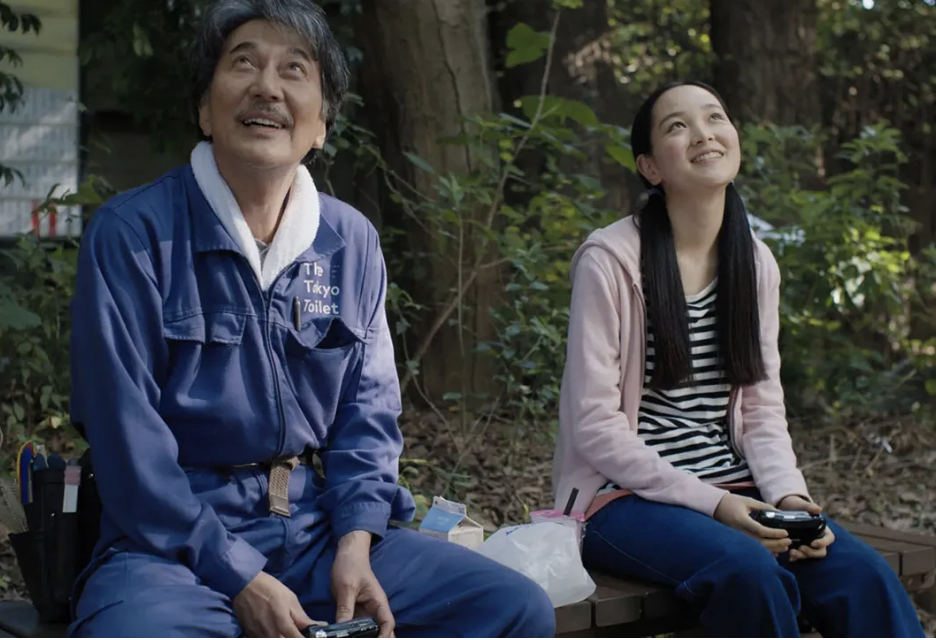
PERFECT DAYS IS a small gem of a movie. Its focus is the quiet, uneventful life of Hirayama, a Tokyo public toilet cleaner. It’s a job at the very bottom of the social hierarchy; one that confers no status; only invisibility. He isn’t – as would most people- in search of better. And that’s the point, the parable of the movie. It’s an image of the spirit at peace with itself. I guess, in this evocation of deep -agnostic – spirituality, it’s an image of a kind of Zen calm.
For Hirayama, this job, because of its unvarying sameness, is perfection itself. Every day he arises from his minuscule flat at the same time and follows the same routine: coffee, toilet cleaning, lunch in a park where he always exchanges nods with a regular there; he then takes a photo (using film) of the same tree (he has boxes of these photos in his flat), more cleaning, a visit to a bath house and on and on. Every day.
He executes his work with meticulous care; he has enough money to be free from want; he is intellectually curious and fulfilled; he clearly has a small eco-system of friends. He is a man fulfilled. The movie poses the question: what need is there for more?
The movie, from director Wim Wenders (who also made a documentary about Pope Francis) finds the perfect balance between this spiritual, symbolic dimension and ‘the real world’. His protagonist is both of this world and apart from it; it is his slight eccentricities (He still listens to cassette tapes…of American 70’s rock and jazz; still uses film) that, like a few others in the story, make him both genuinely weird and also clearly uplifted above the vanities that we regard as normal.
This repetitiveness, the banality of unvarying sameness, the images of the ebb and flow of light that merge into dream-like images that knit the narrative together, suggest a transcendence of time. It is as if the unchanging flow of one day into another indicate both the passage of time and its irrelevance to the spirit. Hirayama’s demeanor of quiet calm is in stark contrast with the images of Tokyo rush hour, of people scrambling into his toilets in desperation, of his young assistant forever planning for a future that will never happen, of the need to move up, move on, move forward.
And then one day his niece turns up. She is running away from her controlling, vastly wealthy mother – his sister- the very image of ‘achievement’ or ‘ambition’. Her worldliness is such that she simply cannot fathom the spiritual simplicities of her brother. But the reality of the world continually presses in on him: his assistant unexpectedly quits the job, forcing him to break routine and hustle; a young girl steals one of his cassettes etc. These minor, pedestrian dramas are contrasted with the deeper existential drama of death. He has a chance encounter one night with a man dying of cancer; a man running out of time. They play a silly game of chasing each other’s shadows, as if they’d both rolled back time and were still children; as if the life most people live is just one of chasing shadows…of wealth, love, happiness.
Perhaps the perfect day lies in never chasing the shadows. Just stop, wait for the flow of light on the tree; and then the let joy come to you
Koji Yakusho who plays Hirayama won the 2023 Cannes best actor award; and deservedly so. His, mainly speechless visualization, without any mawkishness or sentimental absurdity, of his character’s engagement with the joy of living is priceless.
PERFECT DAYS: Dir/Writer: Wim Wenders. Co-writer: Takuma Takasaki. With: Koji Yakusho (Babel), Tokio Emoto. Cinematographer: Franz Lustig
